Blog


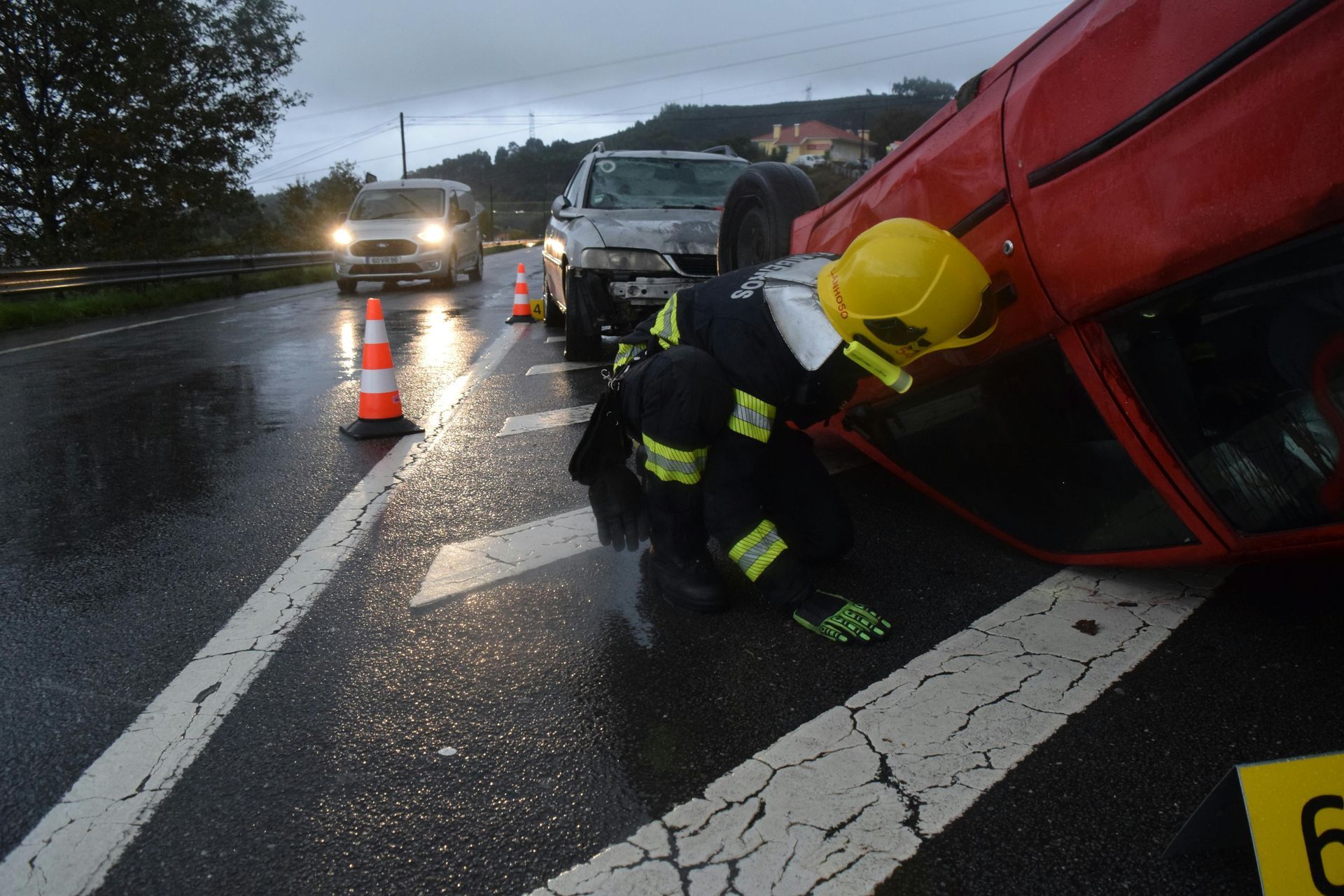
In many car accident cases, liability comes down to one thing: proof. Two drivers. Two stories. Completely different versions of what happened. One says the light was green. The other says it was red. One says the other driver swerved. The other says they stayed in their lane. Witnesses forget. Stories change. Dash cameras do not. Why Dash Cameras Matter in Mississippi Car Wreck Cases As a personal injury attorney, I see it all the time. After a crash, memories are foggy. People are shaken up. Details get confused. Sometimes, people simply tell a version of events that helps their case. When that happens, the case often becomes a credibility battle. A dash camera can end that battle in seconds. Clear video footage can: • Show which driver had the right of way • Capture lane position and traffic signals • Document sudden braking or unsafe lane changes • Record road conditions and weather • Provide timestamps that verify when the crash occurred Instead of arguing about what happened, you have evidence. And evidence carries weight. Insurance Companies Rely on Inconsistencies Insurance companies look closely at statements and inconsistencies. If your description of the accident changes slightly over time, they may use that against you. A dash cam removes doubt. It protects you from false claims. It protects you from exaggerated stories. It protects you when the other driver decides to shift blame. In short, it protects the truth. Are Dash Cameras Expensive? Not anymore. Quality dash cameras are widely available at a variety of price points. Many are easy to install and plug directly into your vehicle’s power outlet. Some even connect to your phone for instant access to footage. For a relatively small investment, you gain a powerful layer of protection. What Happens If You Don’t Have One? Without video, your case may depend on: • Your testimony • The other driver’s testimony • Any available witnesses • The investigating officer’s report Sometimes that is enough. Sometimes it is not. When there are no independent witnesses, and both drivers blame each other, cases can become difficult and expensive to litigate. Video changes that dynamic immediately. Protect Yourself Before You Need It No one plans to be involved in a crash. But if it happens, you want the strongest possible position from the start. A dash camera is not about being paranoid. It is about being prepared. Protect yourself. Protect your family. Protect the truth. Call us today at (769) 208-5683 for a

What a police accident report actually does A police accident report provides a snapshot of what an officer observed at the scene of a crash. It typically includes statements from the drivers, any available witnesses, basic vehicle information, road conditions, and the officer’s initial impressions. What it does not do is decide civil liability. Police officers do not determine fault for purposes of a personal injury claim. Their role is to document, not to issue legal conclusions about who is responsible for damages. Why accident reports can be incomplete Even thorough accident reports have limitations. Officers arrive after the crash has already occurred and must work with the information available at that moment. Common issues include: • Witnesses leaving before statements are taken • Drivers being shaken, injured, or unsure of details • No immediate access to video footage or electronic data • Injuries that are not obvious at the scene An incomplete report does not mean the officer made a mistake. It simply reflects the reality of crash investigations. How liability can change after a car accident report As a car accident claim progresses, additional evidence often becomes available. This may include photographs, surveillance or dashcam footage, vehicle damage analysis, phone records, and medical documentation. When new evidence is reviewed, fault can be reassessed. In some cases, responsibility is shared differently than initially assumed. In others, facts emerge that were not known at the time the accident report was written. This is why an insurance company’s reliance on “what the report says” is not always the end of the discussion. Why accident reports matter in Mississippi personal injury claims Insurance companies often treat accident reports as if they are definitive. While they are important, they are only one piece of the overall liability analysis. In Mississippi personal injury cases, liability is based on the totality of the evidence, not a single document. A less-than-perfect accident report does not automatically prevent an injured person from pursuing a valid claim. The bottom line A police accident report is an important starting point after a car wreck. It helps frame early discussions about fault and insurance coverage. But it does not decide the outcome of a personal injury case by itself. If you were injured in a car accident and have questions about how an accident report affects liability, understanding the process early can make a meaningful difference later. Call us today at (769) 208-5683 for a free consultation.
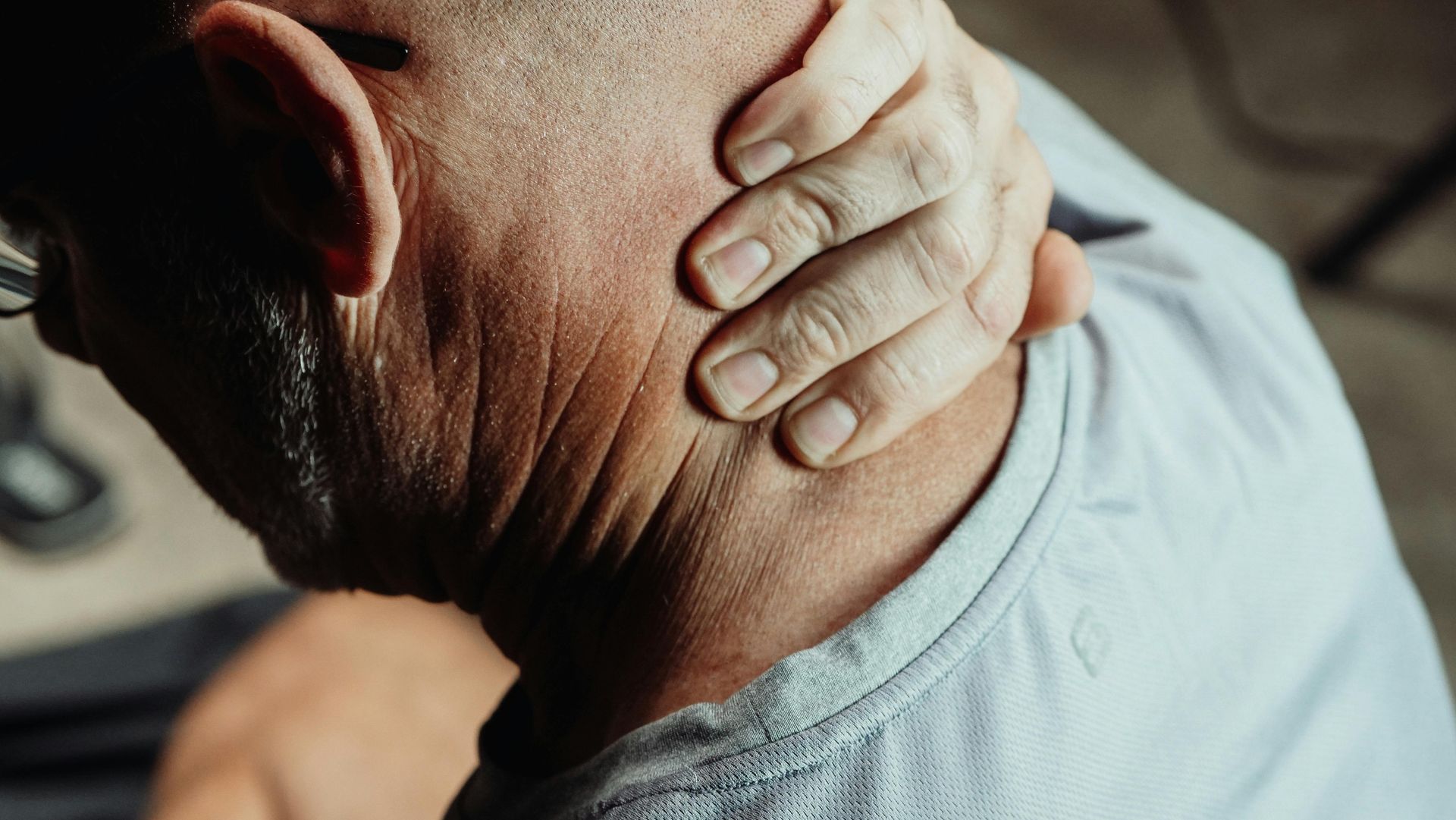
If you’ve ever driven down the highway in Mississippi, you’ve seen them. Billboards showing smiling people holding oversized checks, implying that a car accident leads to an instant payday. That image sticks with people. And unfortunately, it creates unrealistic expectations about how personal injury cases actually work. The truth is simple: a personal injury case is not a lottery ticket. It’s about accountability, responsibility, and fair compensation when someone is genuinely harmed. Big Recoveries Usually Follow Serious Injuries When you hear about a large settlement or verdict, there’s almost always a serious story behind it. Those cases typically involve catastrophic injuries, long hospital stays, surgeries, permanent disability, or even loss of life. There’s nothing celebratory about those outcomes. No amount of money makes someone whole after life-altering harm. The compensation exists because the harm is real, significant, and often irreversible. Insurance Coverage Has Limits One of the most common surprises for clients is learning that fault and damages are only part of the equation. Insurance coverage matters just as much. In many cases: • Coverage is lower than people expect • Multiple injured parties are competing for the same policy • Or there is no applicable coverage at all Even when liability is clear, recovery is capped by the insurance available. That’s not advertising talk. That’s reality. Commercial Vehicle Cases Aren’t Automatic Windfalls There’s a widespread belief that if a wreck involves a commercial vehicle or an 18-wheeler, the case is automatically worth millions. That’s simply not true. Commercial cases still require proof of liability, causation, and damages. Insurance policies still have limits. And not every company has deep pockets or unlimited coverage. These cases can be complex, hard-fought, and far from guaranteed. Beware of Easy Promises If someone tells you your case is a “slam dunk” or promises quick, easy money, that should give you pause. Every legitimate personal injury claim depends on facts, evidence, medical records, and applicable insurance. There are no shortcuts, and there are no guarantees. An attorney’s job is not to sell hope. It’s to explain the reality of your situation and guide you through it. What a Personal Injury Case Is About At its core, a personal injury case is about: • Being treated fairly • Having medical bills and lost wages addressed • Holding the responsible party accountable • Protecting your future when an injury changes your life It’s not about jackpots or headlines. It’s about real people dealing with real consequences. Final Thought Billboards and commercials show the outcome everyone wants. They don’t show the injuries, the uncertainty, or the limits that exist in nearly every case. If you’ve been injured, you deserve straight answers and realistic expectations from the beginning. That’s how trust is built, and that’s how good decisions are made. If you have questions about a real injury claim in Mississippi, it’s worth having an honest conversation before assuming anything based on an ad. Call us today at (769) 208-5683 for a free consultation.

When most people think about winter driving hazards, they picture snow and ice. But the reality is that cold weather alone can significantly affect how your vehicle handles, even on dry roads. One of the most overlooked factors is your tires. As temperatures drop, the rubber in your tires becomes stiffer. This reduces traction, increases stopping distances, and makes it easier to lose control of your vehicle. In winter conditions, your tires are often the difference between a close call and a serious accident. Cold Weather Reduces Traction Tires are designed to grip the road by staying flexible. Cold temperatures cause tire rubber to harden, which limits how well it can conform to the surface of the road. This means: Less grip during braking Reduced ability to turn or maneuver Longer stopping distances Even if there is no visible ice or snow, cold pavement alone can create hazardous driving conditions. Tire Pressure Drops in Cold Weather Cold air causes tire pressure to decrease. For every 10-degree drop in temperature, tire pressure can fall by about one PSI. Underinflated tires: Handle poorly Wear unevenly Increase the risk of blowouts Reduce braking effectiveness Checking your tire pressure regularly during winter is one of the simplest and most effective safety steps you can take. Tread Depth Is Critical Tire tread is designed to move water, slush, and debris away from the contact point between your tire and the road. When tread is worn: Hydroplaning becomes more likely Wet roads become more dangerous Traction is significantly reduced If your tread depth is low, winter conditions will magnify the risk. Adjust Your Driving for Winter Conditions Even with good tires, winter driving requires adjustments: Slow down Increase your following distance Brake earlier and more gently Avoid sudden steering or acceleration Many winter accidents happen not because of extreme conditions, but because drivers underestimate how much cold weather changes vehicle performance. A Simple Safety Reminder Most winter wrecks are not caused by snowstorms. They are caused by everyday drivers on cold roads who don’t realize how much their stopping ability and traction have changed. Taking a few minutes to check your tires could prevent a serious accident. Staying informed and prepared is one of the best ways to protect yourself and your family on Mississippi roads this winter. Call us today at (769) 208-5683 for a free consultation.

When temperatures drop, Mississippi roads can become dangerous in ways many drivers don’t expect. Even when there’s no snow on the ground, cold weather creates conditions that increase the risk of car accidents and serious injuries. Winter wrecks are often labeled as “minor” by insurance companies. In reality, they can lead to very real and lasting harm. Why Cold Weather Makes Driving More Dangerous Cold mornings bring a unique set of hazards. Bridges, overpasses, and shaded areas freeze first, often without visible warning. What looks like a dry road can quickly turn slick, especially during early morning commutes. Drivers also tend to underestimate how much longer it takes to stop in cold conditions. Tires lose traction, braking distances increase, and sudden slowdowns often result in rear-end collisions. Low-Speed Does Not Mean Low Injury One of the biggest misconceptions surrounding winter crashes is that low speeds equal minor injuries. That’s simply not true. Many cold-weather wrecks happen at slower speeds, but the forces involved can still cause: Neck and back injuries Soft-tissue damage Aggravation of pre-existing conditions Delayed pain that appears days later Adrenaline often masks symptoms immediately after a crash. It’s common for people to feel “fine” at the scene, only to experience stiffness, headaches, or worsening pain in the days that follow. Why Insurance Companies Downplay Winter Crashes Insurance adjusters frequently minimize cold-weather accidents by focusing on vehicle damage instead of physical injury. Phrases like “minor impact” or “low-speed collision” are often used to justify low settlement offers or claim denials. What matters is not how fast the vehicles were moving. What matters is how your body was affected. Medical documentation, early treatment, and accurate records play a critical role in protecting your claim. What You Should Do After a Cold-Weather Wreck If you’re involved in a crash during cold weather: Seek medical evaluation, even if symptoms seem mild; Document the accident scene and road conditions’; Follow through with recommended treatment; and Avoid assuming the claim will “work itself out” Waiting too long can make injuries harder to prove and easier for insurance companies to dispute. Protect Yourself When Temperatures Drop Winter driving requires extra caution, and winter accidents deserve to be taken seriously. If you’ve been injured in a cold-weather crash, understanding your rights early can make a significant difference. Cold roads can lead to real injuries. Knowing your rights helps you protect yourself when it matters most. Call us today at (769) 208-5683 for a free consultation.
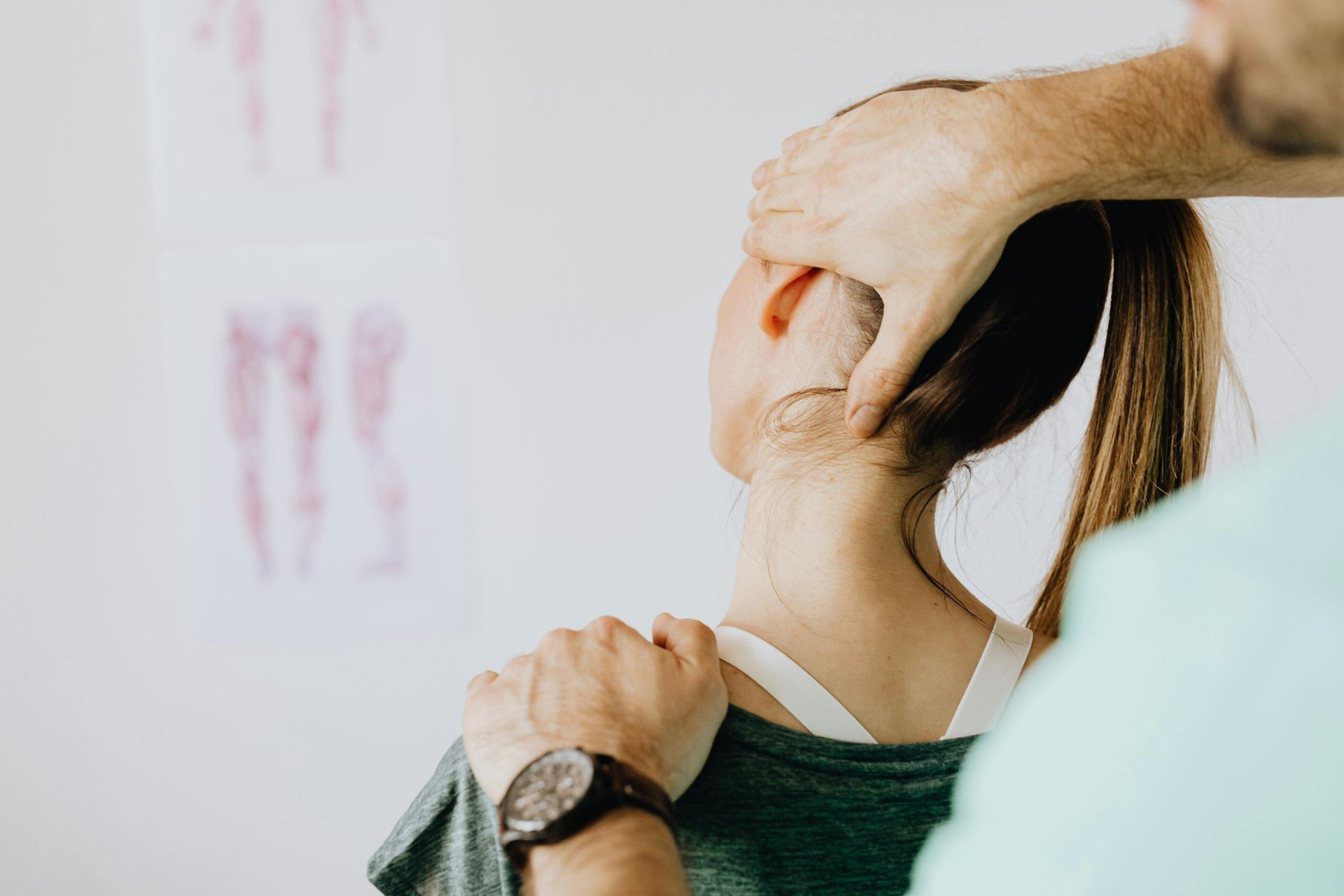
One of the most common misconceptions after a car wreck is that a crash must look serious for an injury to be real. If the vehicles involved do not show major damage, insurance companies are quick to label the collision a “minor impact” and downplay any injuries that follow. That assumption is wrong. Vehicle Damage and Human Injury Are Not the Same Thing Modern vehicles are designed to absorb force. Crumple zones, bumpers, and frames are engineered to take the hit so occupants do not. The human body does not have that luxury. Your neck, back, shoulders, and brain absorb rapid acceleration and deceleration forces, even in collisions that occur at relatively low speeds. Those forces can stretch ligaments, compress discs, and cause the brain to move inside the skull. None of that requires a mangled vehicle. Injuries Commonly Seen in “Low Impact” Crashes We routinely see serious injuries from crashes that insurance companies describe as minor, including: Herniated or bulging discs in the neck and back Concussions and other traumatic brain injuries Rotator cuff tears and shoulder injuries Nerve damage causing radiating pain or numbness Chronic headaches and neck pain These injuries often do not show up immediately. Many people feel “okay” at the scene, only to experience worsening pain or neurological symptoms hours or days later. Delayed Pain Is Normal and Documented It is entirely normal for symptoms to appear after the adrenaline wears off. Muscle spasms, inflammation, and nerve irritation frequently take time to develop. Delayed treatment does not mean an injury is exaggerated or unrelated. It means the body is responding the way bodies often do after trauma. Unfortunately, insurers often use delayed symptoms as a reason to question legitimacy rather than as a medically recognized reality. Why Insurance Companies Focus on Vehicle Damage Insurance adjusters are trained to look for reasons to minimize claim value. One of the easiest ways to do that is to focus on photos of the vehicles instead of medical evidence. Low repair costs are often used to suggest that injuries could not have occurred. This ignores decades of medical research and real-world experience showing that injury severity does not correlate cleanly with visible vehicle damage. What You Should Do After Any Collision If you are involved in a crash, regardless of how minor it may seem: Pay attention to how your body feels over the next several days Seek medical evaluation if you experience pain, stiffness, headaches, dizziness, or numbness Follow through with recommended treatment Be cautious about giving recorded statements before understanding the full scope of your injuries Protecting your health should always come first. Legal and insurance issues come second. The Bottom Line Low impact does not mean low injury. If you have been hurt in a crash and are being told that the damage “wasn’t bad enough,” that does not make it true. Injuries are determined by medical evidence, not bumper photos. If you have questions about an injury claim or your rights after a collision, getting accurate information early can make a meaningful difference. Call us today at (769) 208-5683 for a free consultation.

Looks Dry. Still Dangerous. Winter Driving Myths That Cause Serious Wrecks in Mississippi When people think about dangerous winter driving, they usually picture snow, ice, and blizzard conditions. In Mississippi, that assumption causes a problem. The truth is this: the most dangerous wrecks in Mississippi don’t happen in bad weather — they happen when people think the roads are fine. Because we don’t deal with snow and ice very often, drivers tend to let their guard down during colder months. Unfortunately, that false sense of security leads to serious crashes every year. Let’s break down a few winter driving myths we see all the time. Myth #1: “It’s Just Rain” Rain might not seem like a big deal, but wet roads dramatically reduce traction and increase stopping distance. Bridges, overpasses, and shaded areas can be especially slick on cold mornings. Many crashes happen when drivers don’t realize how much longer it takes to stop on wet pavement. Myth #2: “I Have All-Wheel Drive, I’m Fine” All-wheel drive can help your vehicle move forward, but it does nothing to help you stop. Braking distance depends on road conditions, tire quality, and speed — not how many wheels are driving the car. This is one of the most common misconceptions we see after winter crashes. Myth #3: “I’m Only Going a Little Over the Speed Limit” Speed becomes far more dangerous when temperatures drop and roads are wet. Even a small increase in speed can make the difference between stopping safely and causing a collision. Most drivers don’t realize how much speed affects reaction time and braking on cold pavement. Myth #4: “Mississippi Doesn’t Get Winter Weather” That may be true, but winter still brings cold mornings, slick roads, limited traction, and longer stopping distances. You don’t need snow or ice for a serious wreck to occur. Many winter crashes in Mississippi happen on days that look completely normal. Why This Matters After a Crash We often hear clients say, “It didn’t seem that bad at first.” Unfortunately, injuries don’t always show up immediately, and insurance companies are quick to downplay claims that involve low-visibility conditions or minor property damage. Delaying medical treatment or assuming a crash wasn’t serious can affect both your health and your legal rights. Stay Safe This Winter If you’re driving during the winter months in Mississippi: Slow down Leave extra space between vehicles Don’t assume the road is safe just because it looks dry And if you or someone you love is injured in a crash — even one that didn’t seem serious at the time — it’s important to understand your rights before dealing with the insurance company. Being informed can make a real difference. Call us today at (769) 208-5683 for a free consultation.
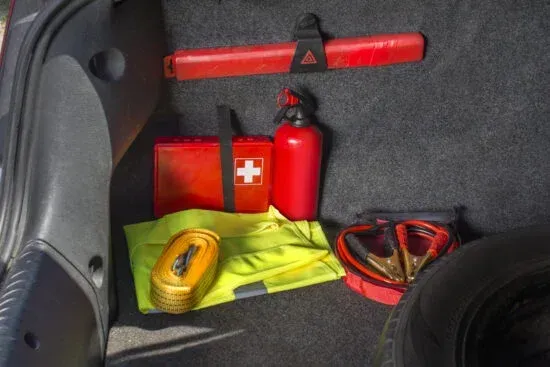
When people think about winter driving hazards, Mississippi usually isn’t the first state that comes to mind. Snow and ice are uncommon here, but when they do happen, they can bring traffic to a standstill almost overnight. Roads close, emergency services are stretched thin, and drivers often find themselves unprepared for conditions they rarely face. That’s exactly why having an emergency kit in your vehicle matters so much in Mississippi. Rare Weather Can Create Real Risks Because winter weather is infrequent, many drivers assume they’ll never need to deal with icy roads or freezing temperatures. Unfortunately, history shows otherwise. When ice storms or sudden cold snaps hit our area, even experienced drivers can end up stranded due to wrecks, road closures, or mechanical issues. Unlike states that regularly deal with winter conditions, Mississippi drivers may wait longer for help to arrive. Towing services, law enforcement, and medical responders can be overwhelmed during widespread weather events. Having basic supplies in your car can help you stay safe and comfortable while you wait. What Should Be in a Mississippi Emergency Car Kit? You don’t need anything elaborate. A simple kit can make a meaningful difference if you’re stuck on the roadside or unable to continue driving. Consider keeping these items in your vehicle: Bottled water Non-perishable snacks A blanket, gloves, or an extra jacket Flashlight with fresh batteries Phone charger or portable battery pack First-aid supplies Jumper cables Ice scraper and basic tools These items don’t take up much space, but they can help keep you warm, hydrated, visible, and connected if conditions deteriorate. Why Preparation Matters After a Wreck Winter weather increases the risk of crashes, even at low speeds. Ice reduces traction, lengthens stopping distances, and makes sudden maneuvers dangerous. In Mississippi, where drivers and infrastructure are not always prepared for icy roads, accidents can happen quickly. If you’re involved in a weather-related accident, your safety comes first. Once you’re out of immediate danger, it’s important to document what happened and understand your legal rights. Insurance companies often scrutinize winter-weather crashes closely, and being prepared can help protect you later. A Small Step That Can Make a Big Difference Keeping an emergency kit in your vehicle is a simple habit, but it’s one that can pay off when conditions turn unexpectedly dangerous. Mississippi weather may be unpredictable, but your level of preparedness doesn’t have to be. At Stutzman Law Firm, we believe safety starts long before a crash happens. Being prepared on the road is one of the easiest ways to protect yourself and your family. If bad weather leads to an accident and you have questions about your rights, we’re here to help. Call us today at (769) 208-5683 for a free consultation.
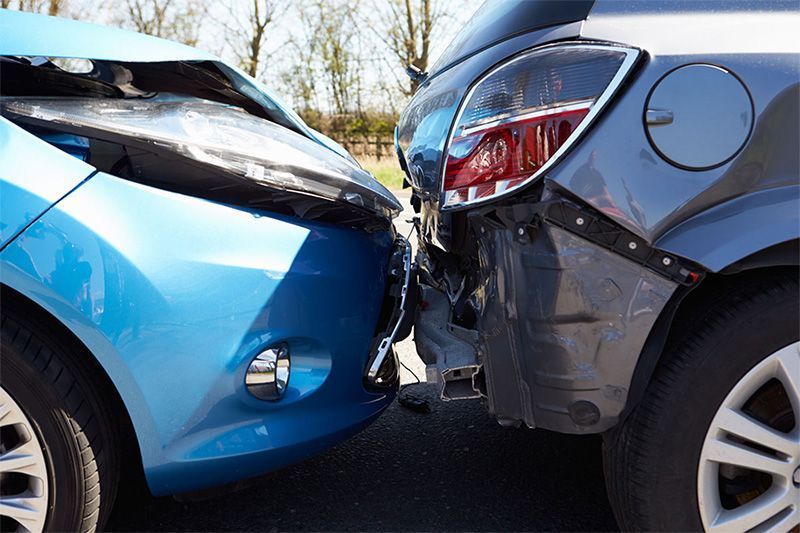
If you have ever rented a car, you have probably been asked a familiar question at the counter: “Do you want to add our coverage?” Many people decline, assuming the rental company’s insurance automatically protects them in a wreck. Others believe that if a rental car is involved in a crash, the rental company is automatically responsible. In most cases, both assumptions are wrong. Understanding how rental car insurance actually works and how the Graves Amendment affects liability can protect you from unexpected financial exposure after a serious accident. Who Pays After a Rental Car Accident? After a rental car crash, insurance coverage usually applies in a specific order. This often surprises drivers. 1. Your Personal Auto Insurance Is Usually First In most rental car accidents, your own auto insurance is the primary coverage, even though you are driving a rented vehicle. Your policy may cover: Bodily injury liability Property damage to others Damage to the rental vehicle This also means a rental car accident can still impact your premiums just like any other wreck. 2. Credit Card Coverage Is Often Limited If you used a credit card to rent the vehicle, your card may offer secondary coverage, but this is often: Limited to vehicle damage only Excludes bodily injury claims Subject to strict rules and exclusions Many people only discover these limitations after a claim has already been denied. Shape 3. Rental Company Coverage Only Applies If You Purchase It Rental companies typically offer optional coverage at the counter, often called: Collision Damage Waiver (CDW) Loss Damage Waiver (LDW) Supplemental Liability Protection (SLP) If you decline this coverage, the rental company’s policy usually does not protect you. If you purchase it, that coverage may: Limit or eliminate responsibility for vehicle damage Reduce personal liability exposure Still include exclusions and coverage caps Skipping that coverage to save money up front can lead to significant out-of-pocket costs later. The Hidden Costs Many Renters Do Not Expect Even when injuries are minor, rental companies often pursue additional charges such as: Loss of use while the vehicle is being repaired Diminished value of the rental vehicle Towing and storage fees Administrative and processing charges These expenses add up quickly and are not always fully covered by insurance. Why the Rental Company Is Usually Not Automatically Responsible Understanding the Graves Amendment One of the most common myths about rental car accidents is that the rental company is automatically responsible because it owns the vehicle. Federal law changed that. The Graves Amendment, passed in 2005, generally protects rental car companies from liability based solely on ownership of the vehicle. In simple terms: The rental company usually cannot be sued just because it owns the vehicle The driver is typically the legally responsible party The rental company may only be liable if it was independently negligent, such as: Failing to properly maintain the vehicle Renting to a driver it knew was unsafe or unqualified In most routine rental car crashes, the Graves Amendment shields the rental company from responsibility, even when serious injuries occur. What If You Are Injured by Someone Driving a Rental Car? If another driver operating a rental car causes your injuries, your claim usually proceeds against: The driver’s personal auto insurance Any applicable credit card coverage Any optional rental coverage they purchased The rental company itself is often protected under the Graves Amendment unless its own negligence can be proven. If the at-fault driver has no insurance or not enough insurance, uninsured or underinsured motorist coverage may become critical. What to Do After a Rental Car Accident If you are involved in a crash while driving a rental vehicle: Do not assume the rental company will handle everything Avoid giving recorded statements before understanding coverage Gather all rental agreements and insurance paperwork immediately Seek medical attention right away if you are injured Rental car claims become complicated very quickly, and early mistakes can impact both your medical bills and your financial recovery. Final Thoughts on Rental Car Accidents and Insurance Coverage Rental cars create a false sense of protection for many drivers. The reality is: Your personal insurance is usually first in line Optional rental coverage plays a major role Federal law often shields rental companies through the Graves Amendment If you or someone you love has been injured in a rental car accident, getting clear legal guidance early can make a real difference in both your recovery and your financial protection. Call us today at (769) 208-5683 for a free consultation.

